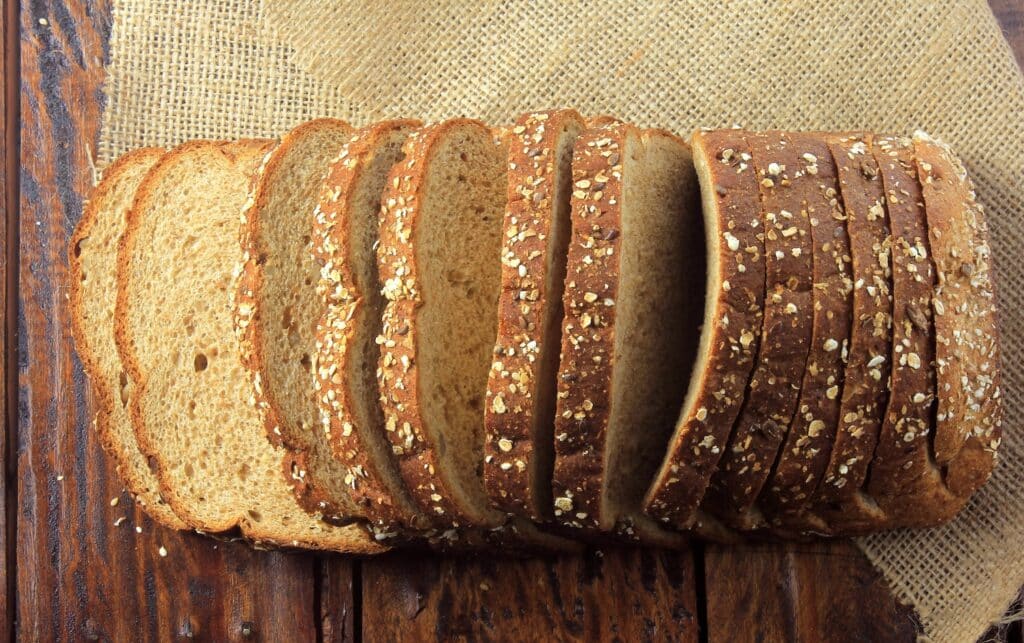Essential Guide to Processed Foods, According to a Nutrition Scientist Leave a comment
Processed foods are a significant part of our daily diet, from the bread we toast in the morning to the ready meals we heat for dinner.
But not all processed foods are created equal. Understanding the differences can help you make healthier choices.
What Are Processed Foods?
Processing food simply means altering it from its original form. This is done through methods like pasteurization, canning, drying, and freezing to preserve shelf life.
Here are two common types of food processing as defined by the NOVA classification system:
- Minimal Processing: This includes basic methods like pasteurization to kill bacteria or canning to preserve fruits and vegetables.
- Ultra-Processing: This involves more complex processes that change the food’s texture and structure, often adding preservatives, emulsifiers, and other additives.
It’s the latter type—ultra-processing—that has become a concern among health experts.
Ultra-processed foods are a broad category that includes packaged snack chips, chocolate candies, and breakfast cereals.
Scientific research increasingly links these foods to health issues like obesity and type 2 diabetes.
For example, a randomized controlled trial found that people who consumed diets where 80% of the calories came from ultra-processed foods ate about 500 calories a day more than those whose diets consisted of 90% unprocessed foods.

Is All Ultra-Processed Food Bad?
It’s important to dig deeper into the details:
- Observational Studies: These studies have shown that while some UPFs like high-fiber breads and cereals might reduce the risk of type 2 diabetes, others like cakes, cookies, and soft drinks may increase the risk of type 2 diabetes and heart disease. There’s also evidence that some additives may increase risk of certain diseases, but this evidence isn’t consistent.
- Randomized Controlled Trials: Although a high-quality trial did show that an ultra processed diet led to higher calorie intake than the unprocessed diet, the ultra processed diet had nearly twice the energy density and a lack of whole fruits and vegetables. This is important because it is well-established that diets that are energy dense are more likely to lead to spontaneous overconsumption of calories.
So the best evidence to date seems to suggest that there are two main reasons that diets high in UPFs cause negative health outcomes:
- Low in Whole Plant Foods: Ultra-processed diets usually lack whole plant foods like fruits, vegetables, legumes, nuts, and seeds.
- High Energy Density: These diets are packed with more calories per gram, making it easy to overeat and gain weight.
Fun Fact: MyFitnessPal is like having a dietitian, trainer, and coach right at your fingertips. Download the app today to unlock the best version of yourself!
Tips For Enjoying Processed Foods
In general, many UPFs—including potato chips, pastries, and other snacks—are not health-promoting and should be enjoyed only as treats.
However, if you eat other types of UPFs like ready-made meals or supermarket sandwiches (which tend to be low in veggies), you can increase the nutritional value of your diet by making sure you add lots of whole plant foods, too.
This helps in two ways:
- Adding loads of veggies to meals lowers the energy density, which helps fill you up without overeating.
- The fiber in these foods helps feed the bacteria in the gut microbiome and we think this helps the microbiome to stop you absorbing as many calories!
Here are some actionable tips to put the science into practice:
- Add fruit, nuts, or seeds to cereals: Frozen berries can work well, or try grating an apple into overnight oats.
- Pair ready meals with extra vegetables: Microwaveable veggies can make this easy.
- Have a piece of fruit with a protein shake: It adds fiber and keeps you satisfied.
- Load up your bread with avocado, cucumber, and tomato: Make your sandwich healthier with these tasty additions.
- Be imaginative with burger fillings: Try slices of aubergine, mushroom, or even pineapple for a delicious twist.
FAQ
Are all processed foods unhealthy?
Not necessarily. Ultra-processing can result in foods that are high in fat, low in fiber, and often include unhealthy ingredients like added sugar and salt, but other types of processing like canning beans or freezing vegetables, can still result in food that is nutritious and convenient.
What are examples of processed foods?
Processed foods are typically altered from their original state for convenience, preservation, or taste. Common examples include:
- Canned Goods: Foods like soups, beans, and canned fish are often processed to extend their shelf life.
- Frozen Meals: Ready-made dinners and pre-cooked meats are typically processed to make meal preparation quicker and easier.
- Packaged Snacks: Items such as chips, biscuits, and granola bars are often highly processed to enhance flavor and longevity.
- Beverages: Soft drinks, flavored milks, and some fruit juices undergo processing, often adding sugar and other additives.
- Breads and Baked Goods: Many store-bought breads, cakes, and pastries are made with refined flours and preservatives to stay fresh longer.
- Breakfast Cereals: Cereals can range from minimally processed oats to highly processed options with added sugars and artificial flavors.
- Condiments and Sauces: Ketchup, salad dressings, and pasta sauces are typically processed with additional salt, sugar, and preservatives.
What should I look for on food labels when buying processed foods?
Check for the ingredient list and nutrition facts panel. Look for foods with minimal saturated fat, sodium, and high-fructose corn syrup or other added sugars. And enjoy foods with high energy density (aka, calories) and a lack of whole plants in moderation, too.

Are fortified vitamins and minerals often found in processed foods as effective as those you can get from whole food sources?
Fortified vitamins and minerals can be effective in addressing specific nutrient deficiencies and improving overall nutritional intake. However, they may not always be as beneficial as obtaining nutrients from whole food sources.
Are there healthier alternatives to processed foods?
Yes, opting to get as much of your diet as possible from whole foods like fruits, vegetables, whole grains, legumes, nuts, and seeds is generally a healthier choice. Minimize consumption of foods that contain high levels of saturated fats, added sugars, and/or are high in calories.
Can processed foods be part of a healthy diet?
Yes, in moderation. It’s important to balance processed foods with whole, nutritious foods and to be mindful of portion sizes and overall dietary patterns.
How does food processing affect the nutritional properties of food?
Food processing can sometimes decrease the nutritional quality of foods. For example, turning whole wheat into the refined white flour used to manufacture chips and crackers removes most of the beneficial fiber. However, some processing methods, like canning and freezing, can preserve nutrients.
The Bottom Line
Food processing can affect the nutritional quality of foods in complex ways. Diets where the majority of calories come from ultra processed foods are not advisable.
However, it’s important to recognize that all ultra-processed foods are not equal. Evidence suggests that some ultra-processed foods such as high fiber breads can actually be beneficial.
By making small, smart changes to include more whole plant foods and reduce the energy density of your meals, you can enjoy a balanced diet without completely giving up on convenience. Remember, it’s all about making informed choices and finding a balance that works for you!


